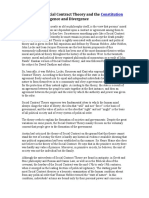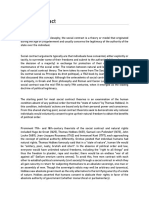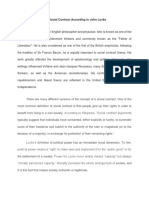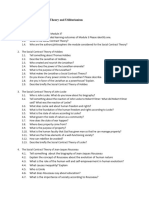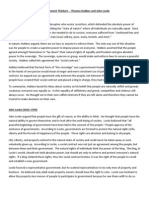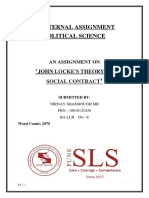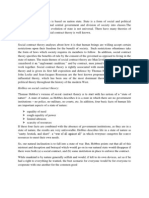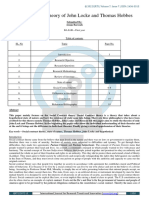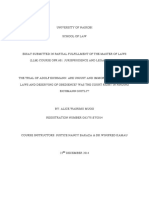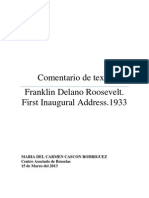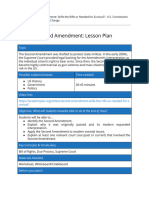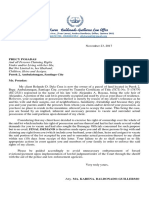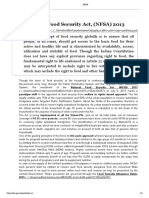0% found this document useful (0 votes)
17 views4 pagesIntroduction
The document discusses social contract theory, highlighting the views of key philosophers such as Hobbes, Locke, Rousseau, Kant, and Rawls. Hobbes argues for a strong government to prevent chaos, while Locke emphasizes individual rights and the government's role in protecting them. Rousseau critiques inequality caused by private property, Kant focuses on moral principles in governance, and Rawls introduces the 'veil of ignorance' to ensure fairness in justice.
Uploaded by
Aron GutierrezCopyright
© © All Rights Reserved
We take content rights seriously. If you suspect this is your content, claim it here.
Available Formats
Download as PDF, TXT or read online on Scribd
0% found this document useful (0 votes)
17 views4 pagesIntroduction
The document discusses social contract theory, highlighting the views of key philosophers such as Hobbes, Locke, Rousseau, Kant, and Rawls. Hobbes argues for a strong government to prevent chaos, while Locke emphasizes individual rights and the government's role in protecting them. Rousseau critiques inequality caused by private property, Kant focuses on moral principles in governance, and Rawls introduces the 'veil of ignorance' to ensure fairness in justice.
Uploaded by
Aron GutierrezCopyright
© © All Rights Reserved
We take content rights seriously. If you suspect this is your content, claim it here.
Available Formats
Download as PDF, TXT or read online on Scribd
/ 4
























